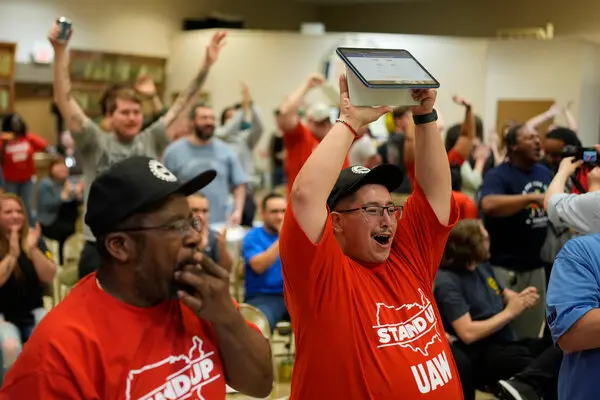Volkswagen’s Chattanooga plant in Tennessee has witnessed a significant milestone as its workers voted to unionize with the United Auto Workers (UAW), marking a historic victory for both the union and the broader labor movement’s aspirations to extend its reach into the southern United States.
This landmark vote represents the inaugural union election conducted as part of the UAW’s ambitious initiative to organize approximately 150,000 employees across non-unionized auto plants throughout the country. Notably, the Chattanooga factory now stands as the first auto plant in the southern region to unionize via election since the 1940s.
The decision to unionize was announced late on a Friday night following the tallying of some 2,200 ballots in favor of unionization, out of approximately 4,300 eligible voters at the plant.
This victory signals a significant stride forward in the expansion of union efforts in the southern US, where labor unions have historically encountered formidable opposition, and union density has notably lagged behind other regions of the country.
Looking ahead, the UAW’s organizing efforts extend beyond Volkswagen, with workers at a Mercedes plant in Vance, Alabama, poised to vote on unionization in mid-May. Moreover, Shawn Fain, the UAW president, has set sights on Tesla, where CEO Elon Musk has staunchly opposed unionization endeavors.
The decision to unionize at the Chattanooga plant follows closely contested elections in 2014 and 2019, during which workers had voted against unionization. In the earlier 2014 attempt, the UAW had sought to collaborate with Volkswagen management to establish a works council akin to those in Germany, where Volkswagen is headquartered. However, this initiative faced significant backlash from anti-union groups, including Republican US Senator Bob Corker, whose staff communicated with such groups prior to the election.
Despite past challenges, the UAW’s latest victory was widely anticipated, buoyed by strong worker support, expedited election procedures, and shifting cultural and labor landscape dynamics, particularly in the aftermath of the UAW’s successful strike against domestic automakers in the previous year.
In response to the unionization efforts, Republican elected officials have shown less inclination to oppose the UAW, signaling a potential shift in the prevailing sentiment towards labor movements in traditionally anti-union territories.
Professor Sharon Block, Executive Director of the Center for Labor and a Just Economy at Harvard Law School noted the significance of the UAW’s success, suggesting that it signifies the potential for substantial change in regions where the labor movement was previously perceived as dormant.
A spokesperson for Volkswagen expressed respect for workers’ democratic rights and affirmed the company’s commitment to facilitating a fair voting process. They highlighted Volkswagen’s pride in providing a favorable working environment in Chattanooga, characterized by competitive wages.


















